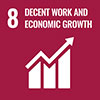Towards a responsible collaborative economy
The sharing economy has burst forcefully onto the scene in a wide range productive sectors (transport, tourism, finance, etc.). This collaborative approach is proving itself to be efficient in terms of business management, while also offering opportunities for citizens to exchange values (providing them with greater autonomy) and in many cases reducing their ecological footprint. Despite these virtues being hard to dispute, a critical and constructive inspection must be carried out to see whether sharing economy companies are also helping to change society's values, or if they are simply making capitalism more efficient. In the analysis for this article, a) we differentiate between the wide variety of actors in the sharing economy according to their purpose; and b) we present three avenues of exploration in which interest has been growing over the past year (the Sharing Business Model Compass, platform cooperativism, and Commons Collaborative Economies). Now is a critical moment if we are to guide the evolution of the sharing economy towards reaching its full potential. This is a complex matter that should not and indeed cannot be simplified.
ODS



 Albert Cañigueral Bagó
Albert Cañigueral BagóOuishare Connector for Spain and Latin America. In 2011 he founded the blog Consumo Colaborativo [Collaborative Consumption], and since then he has been considered one of the leading figures of the platform economy in Spanish. He recently published the book El trabajo ya no es lo que era: nuevas formas de trabajar, otras maneras de vivir `[Work Is Not What It Used to Be: New Ways of Working, Other Ways of Living] (Conecta, 2020). He works as an explorer, consultant and disseminator in the sphere of the platform economy and is currently focusing on the future of work, the impact of the digital platforms in cities, and regulatory innovations.



